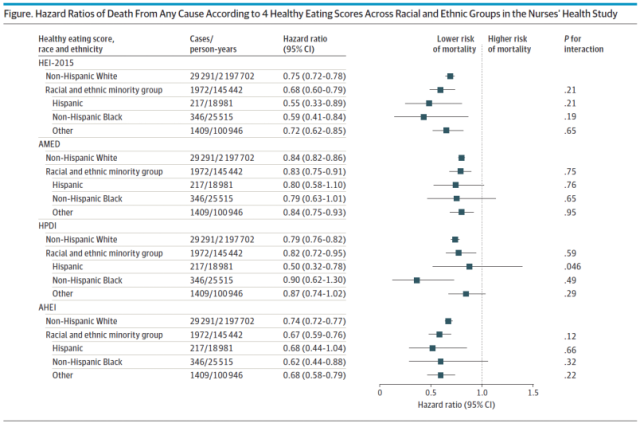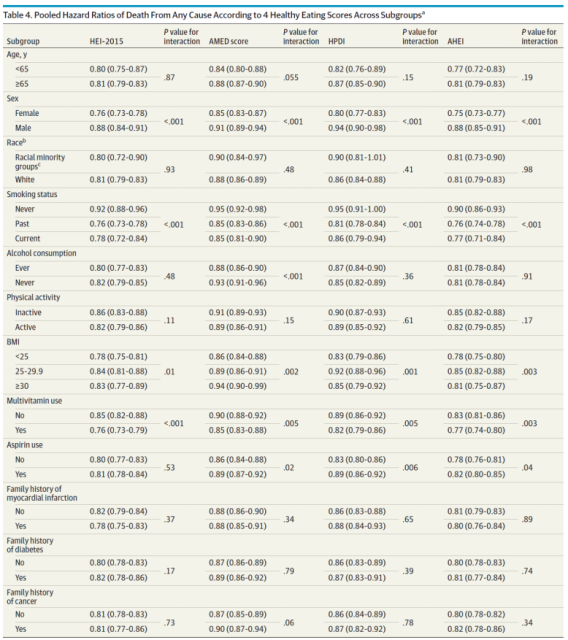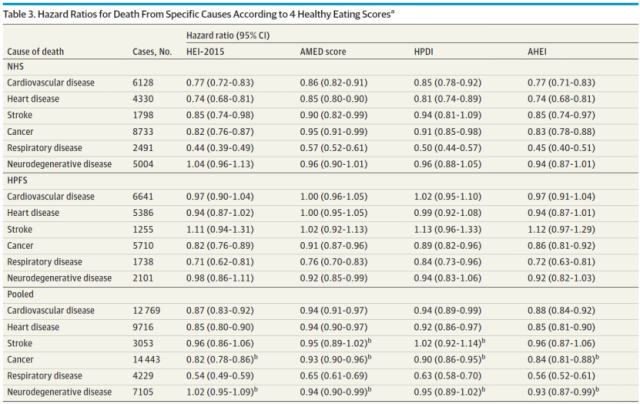Harvard study: studied healthy eating can prolong life and reduce risks of death!
- Normal Liver Cells Found to Promote Cancer Metastasis to the Liver
- Nearly 80% Complete Remission: Breakthrough in ADC Anti-Tumor Treatment
- Vaccination Against Common Diseases May Prevent Dementia!
- New Alzheimer’s Disease (AD) Diagnosis and Staging Criteria
- Breakthrough in Alzheimer’s Disease: New Nasal Spray Halts Cognitive Decline by Targeting Toxic Protein
- Can the Tap Water at the Paris Olympics be Drunk Directly?
Harvard study: studied healthy eating can prolong life and reduce risks of death!
- Should China be held legally responsible for the US’s $18 trillion COVID losses?
- CT Radiation Exposure Linked to Blood Cancer in Children and Adolescents
- FDA has mandated a top-level black box warning for all marketed CAR-T therapies
- Can people with high blood pressure eat peanuts?
- What is the difference between dopamine and dobutamine?
- How long can the patient live after heart stent surgery?
Harvard study: studied healthy eating can prolong life and reduce risks of death!
Harvard University studied the data of nearly 120,000 people and found that as long as one of these four healthy eating patterns is adhered to, it can prolong life and reduce the risk of death!
Diet is the foundation of health, and good diet and habits can greatly affect people’s health status. Data show that unhealthy diets are responsible for 26% of “preventable deaths” worldwide.
Therefore, adopting a healthier eating pattern in the daily diet has become the key to nutrition promotion and maintenance of health.
Recently, scientists from the Harvard School of Public Health published a research paper titled Healthy Eating Patterns and Risk of Total and Cause-Specific Mortality , revealing the association between adherence to different dietary patterns and the long-term risk of total and cause-specific mortality.
Participants who adhered to at least one healthy eating pattern had a lower risk of all-cause mortality and a lower risk of dying from cardiovascular disease, cancer, or respiratory disease during the study period, the results showed .

The Dietary Guidelines for Americans (DGA) shifted the focus from individual nutrients to healthy eating patterns in 2010, and recommended various healthy eating patterns, such as: 2015 Healthy Eating Index (HEI-2015), Alternative Mediterranean Diet (AMED), Healthy Plant-Based Diet Index (HPDI), Alternative Healthy Eating Index (AHEI).
So is there sufficient long-term prospective research to support the relationship between these dietary patterns and the risk of death?
For the study, researchers used health data from two prospective cohort studies: the Nurses’ Health Study (NHS) and the Health Professionals Follow-up Study (HPFS), which included 75,230 female participants and 44,085 male participants respectively .
At baseline and every two years thereafter, information on medical history, lifestyle, and health status was collected by self-administered questionnaires. Death data are categorized as death from cardiovascular disease, cancer, neurodegenerative disease, respiratory disease, and all other causes.
From baseline data, participants with higher diet scores were older, less likely to smoke, more likely to be physically active, and had lower BMI. In multivariate analyses, the 4 dietary scores were inversely associated with risk for most major causes of death.
The association between dietary patterns and overall mortality did not differ significantly by race or ethnicity (below).

Legend: Hazard ratio for death for 4 different racial and ethnic health diet scores in the Nurses’ Health Study. (Source: Shan Z., et al. 2023)
In subgroup analyzes by other potential mortality risk factors, the negative association between dietary score and total mortality was present in all subgroups (table below).
Significant associations were found between the 4 dietary scores and overall mortality (by sex and smoking status); hazard ratios were higher for women than for men, and higher for current and former smokers than never smokers.
 Legend: Summary of mortality hazard ratios for the 4 healthy eating scores according to different subgroups. (Source: Shan Z., et al. 2023)
Legend: Summary of mortality hazard ratios for the 4 healthy eating scores according to different subgroups. (Source: Shan Z., et al. 2023)
Based on the analysis of these two large prospective cohort studies, the researchers found a significant dose-dependent inverse association between adherence to different dietary patterns and overall mortality after adjustment for potential confounders, that is, adherence to a healthy diet pattern of population, the overall mortality rate is lower.
Mortality from cardiovascular disease, cancer, and respiratory disease was inversely associated, and this association was maintained across racial, ethnic, and other subgroups (table below).
Among them, Alternative Mediterranean Diet and Alternative Healthy Diet were associated with reduced mortality from neurodegenerative diseases, which may be related to the benefits of some unique dietary components in these two dietary patterns, such as: nuts and monounsaturated fat.
 Legend: Hazard ratios for cause-specific death for the 4 healthy eating scores. (Source: Shan Z., et al. 2023)
Legend: Hazard ratios for cause-specific death for the 4 healthy eating scores. (Source: Shan Z., et al. 2023)
Behind the association of diet quality scores with mortality, it can be speculated that this may be related to several foods shared in the dietary pattern, such as: whole grains, fruits, vegetables, nuts, and legumes.
However, each eating pattern also has a very different food composition, for example: the Alternative Mediterranean Diet encourages fish consumption, but the Healthy Plant-Based Diet discourages any animal foods.
The findings of this study are consistent with current Dietary Guidelines for Americans recommendations that adherence to an individual’s healthy eating patterns based on individual health needs, food preferences, and cultural traditions can achieve long-term health benefits, although all of these eating patterns encourage healthy plant intake sex food.
The strength of this study is that it directly compared multiple long-term adherence dietary patterns, multiethnic groups, and observed associations between diet quality scores and mortality from respiratory and neurologic diseases.
However, these findings need to be verified in populations with different occupational backgrounds in the future, and further research on the relationship between food components and diseases is needed.
Although different dietary patterns are very different, healthy dietary patterns have some commonalities, and long-term adherence will bring considerable benefits to health.
Of course, don’t forget to make reasonable food choices and combinations based on your personal health.
Reference source:
Shan Z, Wang F, Li Y, et al. Healthy Eating Patterns and Risk of Total and Cause-Specific Mortality.
JAMA Intern Med. Published online January 09, 2023. doi:10.1001/jamainternmed.2022.6117
Harvard study: studied healthy eating can prolong life and reduce risks of death!
(source:internet, reference only)
Disclaimer of medicaltrend.org
Important Note: The information provided is for informational purposes only and should not be considered as medical advice.



